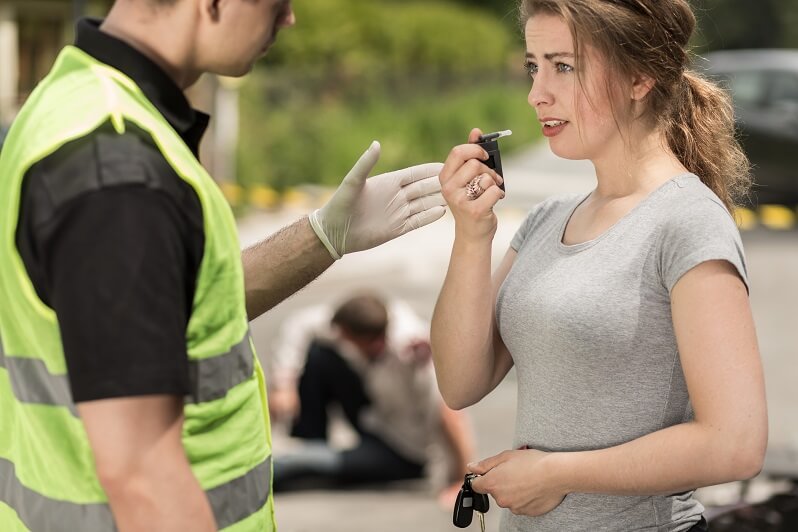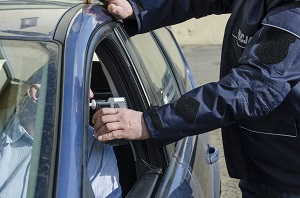Many people have heard about breathalyzer tests, even if they have never had to go through one. These tests are typically unreliable, yet they can still be used to condemn someone who is not drunk.
If someone consents to undergo a breathalyzer test and is charged as a consequence of the findings, they should contact a Fort Worth, breathalyzer lawyer for assistance. Any allegation must be taken seriously, and a detail-oriented lawyer can conduct an investigation into the situation surrounding an arrest in order to create a defense.


Breathalyzer Tests Potential Problems
Inaccuracies in breathalyzer results can be attributed to several factors, including issues with the device itself. Calibration errors are a common problem, as breathalyzers need to be properly calibrated in order for them to accurately measure an individual’s blood alcohol content.
Additionally, electromagnetic interference from other electronic devices, such as cell phones and police radios, can cause problems with older breathalyzer models, which do not have adequate shielding. This interference can affect the accuracy of the readings and lead to incorrect results.
These malfunctions are just some of the many reasons why breathalyzers may be unreliable and should not be relied upon solely when determining an individual’s level of intoxication.
In addition to external factors, health and lifestyle issues can also have a major impact on the accuracy of breathalyzer test results. For example, if someone has recently taken cough syrup, mouthwash, or even some medications that contain alcohol as an ingredient, the device may wrongly register a positive reading when none is present.
Similarly, conditions like acid reflux or diabetes could produce false positives since they cause the body to generate excessive amounts of acetone in the blood. In these cases, it’s important for medical professionals to take additional steps to verify results before drawing any conclusions based solely on the breathalyzer.
A qualified breathalyzer lawyer in Fort Worth has the skill to thoroughly investigate every aspect of your breathalyzer test results, including the device itself, your medical history, and what kind of activities you were engaged in prior to submitting to the test. The lawyer will use this information to build a solid defense case against a DUI or DWI charge and ensure that your rights are protected.
How Do Law Enforcement Officers Determine When To Use Breathalyzer?
Police officers have the authority to pull over any motorists suspected of driving while under the influence of alcohol. Once a motorist is pulled over, they may be asked to take an official breathalyzer test as part of the investigation process.
A police officer must have reasonable grounds for suspicion that you are driving with the influence of alcohol before they can stop and administer a breathalyzer test and, if necessary, make an arrest. This means that there has to be solid evidence of intoxication present.
Police officers are typically trained to use field sobriety tests (FSTs) as a way to assess if reasonable suspicion of impaired driving exists. These tests involve physical tasks such as walking heel-to-toe in a straight line, standing on one leg, and following certain instructions. A breathalyzer test is another method used to measure intoxication if the officer has the necessary equipment. While most police officers don’t carry these devices with them, they are available and can be used when needed.
Furthermore, field sobriety tests do not provide solid proof of drunkenness. Most FST findings are not valid in court if challenged. It’s important to remember that when you are pulled over in doubt of drunk driving, you do not pass or fail a field sobriety test. The exam only provides information about your sobriety. You could be required to submit to a blood test or a breathalyzer depending on those indicators.
Was I Pulled Over By The Officer Legally?
Police officers must always have a valid reason to make a traffic stop. These usually include such things as driving while overspeeding, swerving, or engaging in other potentially dangerous actions.
However, if there is no legal basis for the stop and any evidence obtained through it is allowed to be admitted in court, a Fort Worth breathalyzer lawyer can review the officer’s reasonings in order to establish whether or not they were indeed justified. Even though some police officers may find justification for an arrest without solid legal assistance, an experienced lawyer can help to ensure that all stops are conducted properly and within the confines of the law.
A Guide To Breathalyzer Testing In Fort Worth, Texas
In Texas, prior to being administered a breathalyzer test, a person must be read the state’s Department of Public Safety’s DWI Warning (DIC-24). The operator conducting the breathalyzer test must also ensure that their training and certification for the specific model of breathalyzer is current and up-to-date.
Additionally, the breathalyzer device needs to be calibrated and maintained properly in order to generate accurate results, with all supporting documentation made available upon request. Any deviation from this procedure that affects its accuracy or validity may render any results obtained from the breathalyzer test inadmissible. As such, it is critical that operators follow proper protocol when administering a breathalyzer test in order for it to be considered reliable evidence.
What Effects May These Tests Have On Fort Worth Drivers?
Inaccurate readings from a breathalyzer test can lead to drivers being wrongfully charged with driving under the influence of alcohol, which is a serious offense that can have potentially life-altering consequences. It is concerning that police officers often rely solely on breathalyzer results as evidence to charge drivers with drunk driving, especially when there are no other indicators or symptoms pointing toward the charge. What makes this issue even worse is that these tests have been known to be faulty and inaccurate, leading to innocent people facing criminal charges for something they did not do.
A breathalyzer lawyer in Fort Worth understands that breathalyzer results do not necessarily imply guilt. When defending someone accused of drunk driving, they might look into whether the police officer follows proper procedure while performing the test. If not, lawyers can include such information in their cases.
A defense lawyer can carefully analyze any video of a traffic stop to look for evidence that the driver has the influence of alcohol and to determine if the police officer had probable cause to make the stop. They may also consider additional factors, such as whether the police officer conducted a thorough field sobriety test, administered a breathalyzer examination, or asked relevant questions in order to properly evaluate the situation. If any of these elements are present in the footage, this could be used by an attorney to construct an effective defense for their client in court.
Refusal To Take A Test
When someone is requested to submit to a breathalyzer test following a probable DUI stop, they frequently question if they have the choice to decline the test. Often, people do this because they are aware of the issues and errors that come along with a breathalyzer, but occasionally it is out of fear.
If you have been pulled over in Fort Worth and have been asked to take a breathalyzer test, it is within your rights to refuse. However, doing so could have serious consequences, including the suspension of your driver’s license and other penalties associated with a DWI charge – even if you are ultimately found not guilty in court. Therefore, if you are facing a breathalyzer test, it is essential that you understand what options are available to you.
It is therefore recommended that you speak with an experienced Fort Worth, breathalyzer lawyer. They can provide invaluable legal advice and guidance on how best to proceed in order to protect your rights and limit any potential penalties or fines.
The Value Of Hiring A Fort Worth Breathalyzer Lawyer


With years of experience in dealing with these cases, they can provide invaluable insight into challenging inaccurate evidence and arguing for a favorable outcome. Additionally, they also understand how to navigate scientific studies to develop effective legal strategies on behalf of their clients.
If you are charged with driving drunk, and your arrest was based on a breathalyzer test result, it is vital to consult with an experienced Fort Worth breathalyzer lawyer as soon as possible. While the situation may seem like a lost cause, you should be aware that such results are not as damaging or definitive as they appear. With the help of an attorney proficient in this area of law, there may be grounds for challenging the validity or accuracy of the test result, allowing for the potential dismissal of charges or reduction in penalties.
A criminal defense attorney can thoroughly review all the facts surrounding your case and build a compelling argument to present to court personnel. Furthermore, an experienced lawyer will know how to properly navigate the legal system and make sure that your rights are fully protected during all proceedings.
Don’t let a questionable breathalyzer test result dictate the outcome of your case – speak to an experienced DWI attorney from The Medlin Law Firm today for able and competent representation!
(682) 204-4066 We cannot receive pictures via text so please send those via email or hand deliver to our office.
(682) 204-4066 No podemos recibir imágenes por mensaje de texto, así que envíelas por correo electrónico o entréguelas personalmente en nuestra oficina.






